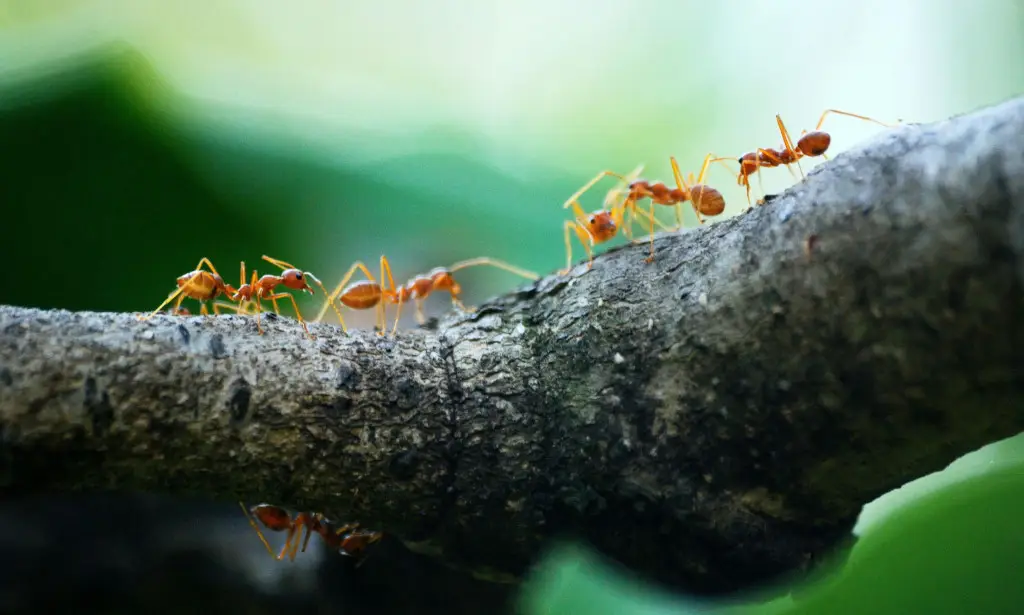[ad_1]
5 Interesting Facts About Ants That Everyone Should Know
Ants are some of the most fascinating and industrious creatures on the planet. Despite their small size, they have complex social structures, incredible strength, and impressive survival strategies. Here are five interesting facts about ants that everyone should know.

1. Ants Can Lift 50 Times Their Own Body Weight
One of the most remarkable traits of ants is their incredible strength. Ants can lift and carry objects that are up to 50 times their own body weight. This is equivalent to a human lifting a car! This strength allows ants to move large food items back to their colony and construct their intricate nests.
2. Ant Colonies Operate Like Superorganisms
Ants live in highly organized colonies that function almost like a single organism, known as a “superorganism.” Each ant in the colony has a specific role, whether it’s foraging for food, caring for the young, or defending the nest. The queen ant is the only one that lays eggs, while worker ants maintain the colony and soldier ants protect it.
3. Ants Use Chemical Signals to Communicate
Ants rely heavily on chemical signals, called pheromones, to communicate with each other. These pheromones are used to leave trails leading to food sources, warn of danger, or signal other ants to gather for a task. This chemical communication allows ants to coordinate complex activities and maintain their highly efficient colonies.
4. Some Ants Farm and Herd Other Insects
Certain ant species have developed the remarkable ability to “farm” other insects. For example, some ants tend aphids, protecting them from predators in exchange for a sugary substance called honeydew that the aphids produce. This mutualistic relationship showcases the ants’ ability to interact with other species in highly specialized ways.
5. Ants Can Survive Floods by Forming Rafts
In response to flooding, some ant species can survive by linking their bodies together to form a floating raft. These rafts can carry the queen and other essential colony members to safety. The ants on the bottom layer can rotate with those on top, ensuring that no single ant is submerged for too long. This incredible adaptation allows them to survive in challenging environments.
FAQs About Ants
How long do ants live?
Worker ants typically live for several weeks to a few months, while queen ants can live for several years, sometimes even decades.
What do ants eat?
Ants are omnivorous and eat a wide variety of foods, including insects, fruits, seeds, and sugary substances.
Do ants sleep?
Yes, ants do sleep, but their sleep patterns are different from humans. They take many short naps throughout the day and night.
How do ants find their way home?
Ants use a combination of pheromone trails, landmarks, and the position of the sun to navigate back to their nest.
Are ants beneficial to the environment?
Yes, ants play a crucial role in the ecosystem by aerating the soil, decomposing organic material, and controlling pest populations.
How many species of ants are there?
There are over 12,000 known species of ants, with more being discovered regularly.
Can ants swim?
Some ants can swim or float, while others can survive floods by forming rafts with their bodies.
Do ants have a queen?
Yes, most ant colonies have a queen whose primary role is to lay eggs and ensure the survival of the colony.
How do ants defend themselves?
Ants defend themselves using their mandibles to bite and, in some species, stingers to inject venom.
Can ants invade homes?
Yes, ants can enter homes in search of food and water, especially during extreme weather conditions or when their natural habitat is disturbed.
Conclusion
Ants are incredible creatures with complex social structures, remarkable survival skills, and a significant impact on the environment. From their strength and communication abilities to their farming techniques and adaptability, ants demonstrate a level of organization and efficiency that is truly extraordinary. Understanding these interesting facts can deepen your appreciation for these tiny yet powerful insects.
[ad_2]

Leave a Reply